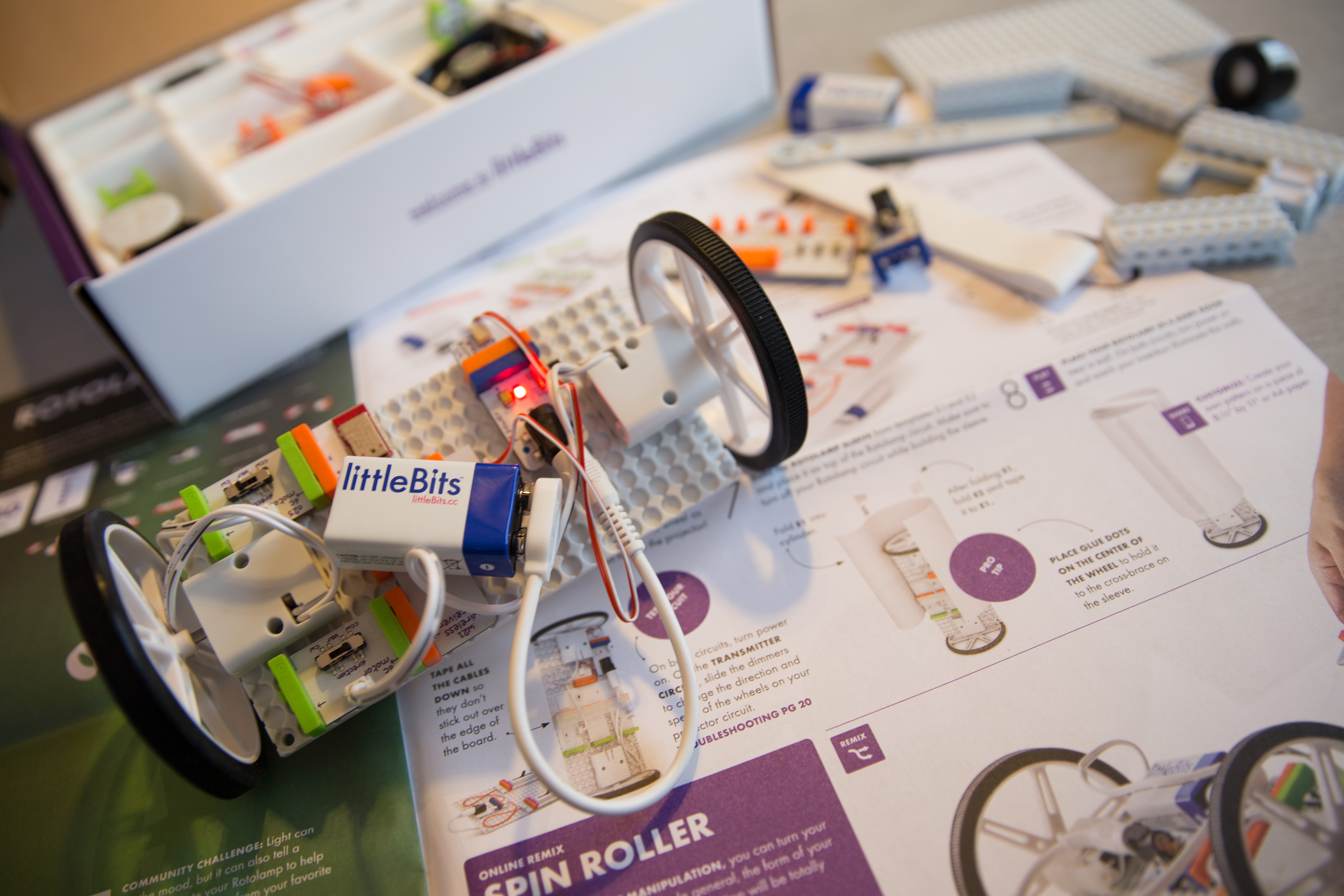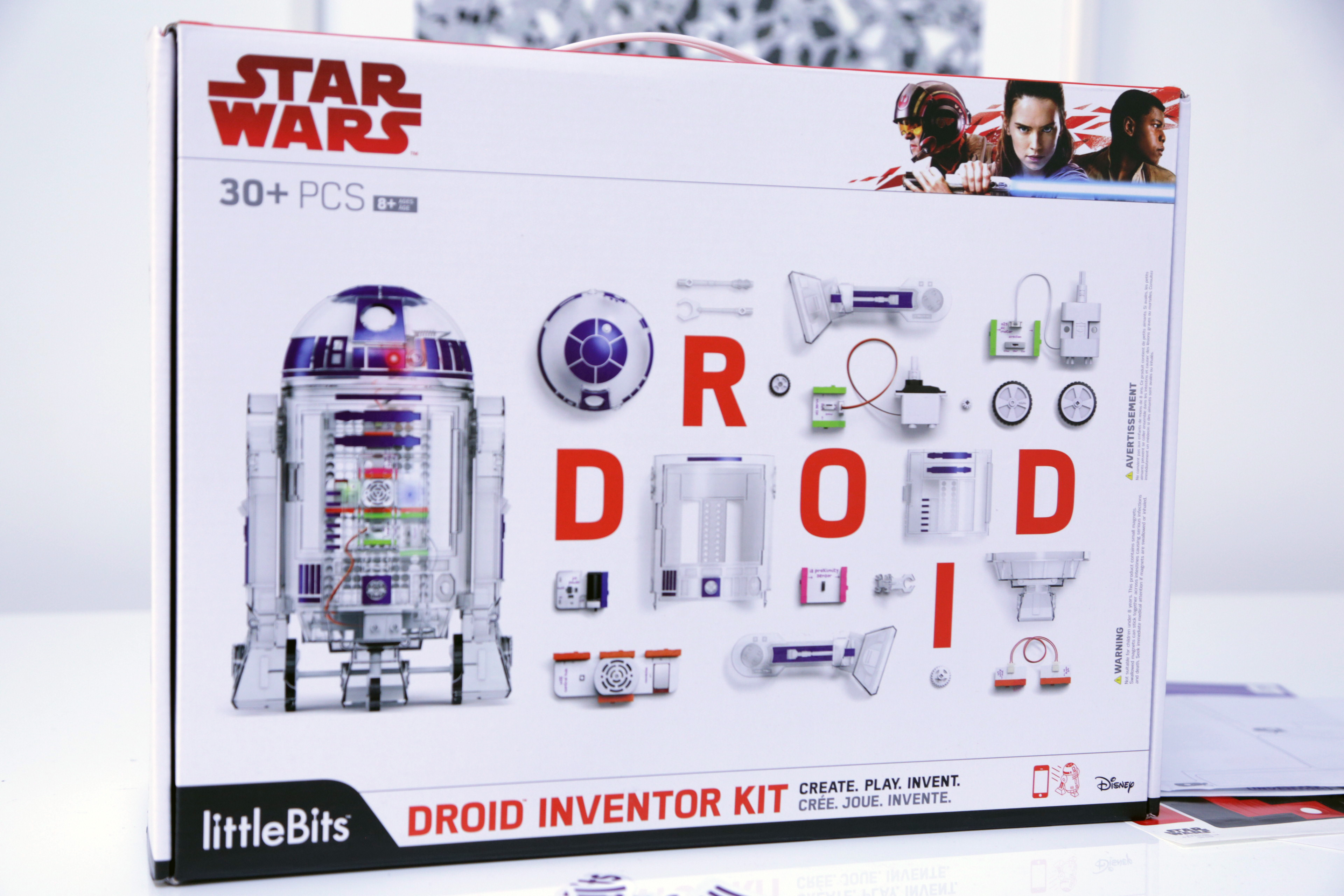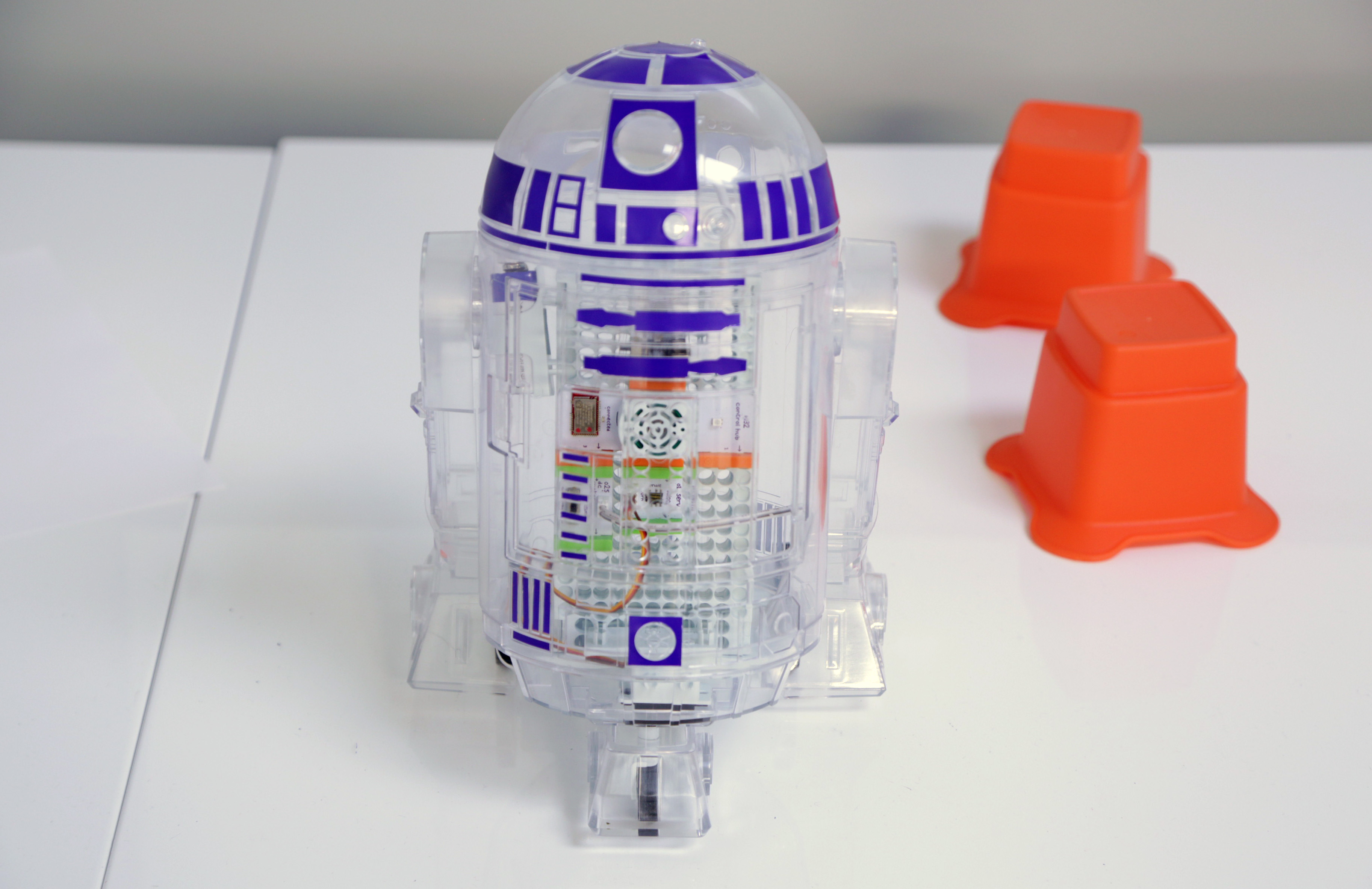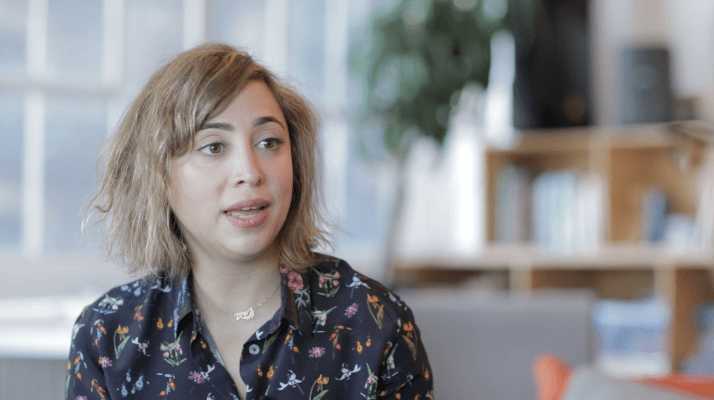Like many of the most compelling startups, littleBits began life as a side-hustle — no expectations, no early push for venture capital. Just a bit of tinkering to pass the time. Ayah Bdeir was a recent MIT grad with a fellowship at New York City architecture design firm eyeBeam when the seeds of the company first sprouted.
“It wasn’t ever meant to be a product or a company. It was just a little project that I was doing. I took it to Maker Fair in 2009,” Bdeir explains, as we sit down in a corner of the company’s spacious Manhattan digs. “It was just me, in a little booth, showing it off to friends, and suddenly hoards of people started coming up and kids starting lining up to play with them. I started to realize there was a real opportunity to inspire kids and empower them to get excited about education.”
Things are bustling inside littleBits’ Chelsea offices. The company moved to the space in 2014 to make room for its rapidly expanding business, and roughly two years later, it already appears to be bursting at the seams. It was, in part, the right product at the right time — littleBits got its foot in the door a few years before Kickstarter and Indiegogo flooded with STEM toys and every major toy company began attempting to teach kids to code.
A little bit bigger
But the startup’s success goes a lot deeper than good timing. Bdeir began tinkering with the company’s modular building blocks a full three years before founding the company in 2011. In their earliest iteration, the “bits” that form the core of the company’s offering were designed for prototyping. In an era when it was becoming increasingly possible to launch a hardware startup from scratch, Bdeir believed she was working on a powerful tool to help inventors bring their visions to life.
“Designers make tables and chairs, and now they’re designing DVD players and coffee makers and Nests,” the CEO explains. “So they need to prototype with electronics; littleBits was a tool for prototyping. It was never really meant for kids.”
It’s a bit of a circuitous route to market, perhaps — but it’s an important distinction. That littleBits began life as a tool for grownup designers meant the product wasn’t subject to the same sort of designed by committee process that often tools the best intended kids products. While it’s true that the sorts of designers that formed the audience Bdeir imagined weren’t likely to be electrical engineers or professional programmers, the core product wouldn’t be subject to any of the dumbing down we often associate with mainstream children’s products.
All ages

In spite of an unexpected demographic shift, however, littleBits’ core offering has actually changed very little since its initial conception. In the past half-dozen years, the startup has expanded its offering a good bit and struck a number of partnerships with content companies and educational programs, but the same pieces Bdeir first created during her post-graduate downtime are still at the heart of littleBits.
“It’s not an Easy-Bake Oven,” she explains with a smile. “It’s not dumbed-down or over-simplified. It’s real engineering made easier to use. Whether you’re an eight-year-old kid or an actual engineer, your interaction with the bits are the same. What changed was the marketing. What changed was how we talk about it. So, instead of saying this is so you can prototype your next invention, this is so you can invent a cool thing or get excited about robotics.”
The foundation of the company’s success has been the embrace of openness — both with regards to the product itself and the audience it targets. On the former, the company has made a point of offering compatibility where possible. That means selling adapters for popular building blocks like LEGO, creating a modding kit aimed at Minecraft players and making its kits work with protocols like IFFFT and Scratch.
A Rey of hope

As far as inclusivity among its audience, Bdeir cites what she calls the company’s “hidden mission” to empower girls to embrace engineering and programming through littleBits. Of course, the company has never shied away from that fact, but it’s also never gone out of its way to create kits specifically targeted at girls, in place of the category’s traditionally young male demographic. Instead, its products are specifically designed to be gender neutral, with bright colors and handwritten text designed to appeal to anyone interested in a stepping stone to a STEM education.
That mission extends to littleBits’ latest offering — a partnership that could prove transformative for the small company. In 2016, the company was given the opportunity to join the Disney accelerator — it was an offer too good to turn down. After all, that program has helped establish fellow kid-focused startup Sphero as a force in the electronic toy category. In 2015, the company went from being a smartphone-controlled novelty to the hottest piece of merchandise for history’s biggest film franchise with the release of BB-8.
“We packed our bags, myself and three other colleagues, and we spent the summer in LA,” says Bdeir. “We spent a bunch of time in Disney meeting with different departments, creatives, character artists, trying to figure out what we could do together. We circled around the best match, which was Star Wars.”

LittleBits, too, found itself embracing a droid — though the New York company opted for a familiar favorite. The littleBits Droid Inventor Kit was one of the most compelling offerings among the deluge of products released on Force Friday in anticipation of December’s The Last Jedi. With the company’s familiar system at its heart, the 30-piece set compels young creators to build their take on the perennial favorite wayfarer droid, R2-D2.
“When we embarked on the Star Wars product, we really opened up the idea of a droid not just being a robot that looks a certain way,” says Bdeir. “The shell is transparent. You can see inside. You can customize it and give it different functions like being a sock-sorting droid or sibling-protecting droid or food-delivery droid.”
The new Star Wars film also afforded littleBits the ability to say true to its “hidden mission,” according to Bdeir. “We used Rey as a mentor. She’s a scavenger, a problem solver, a tinkerer. She’s your mentor throughout the journey.”
